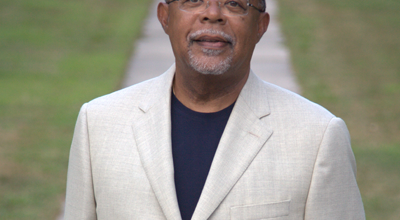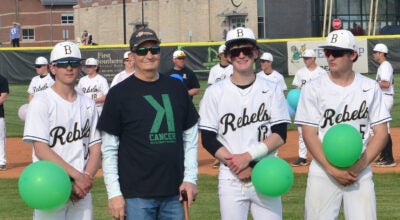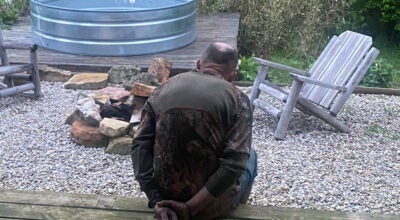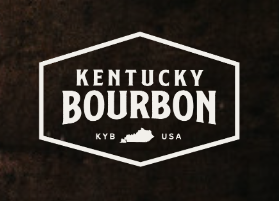Regaining the power of choice
Published 9:49 pm Thursday, April 16, 2020
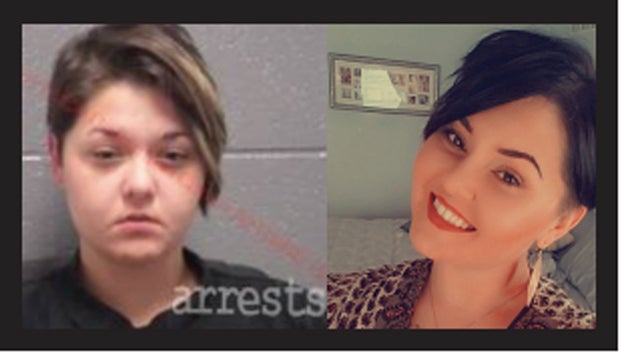
- In 2016, Lorah Douglas (at left) was in the deepest throws of her addiction to heroin. “I had absolutely no hope in myself, and others were losing hope, as well. I was homeless, dirty and tired. Very tired.” Now, in April 2020 (at right), Lorah says she has hope, “not just for myself, but that I can help others overcome the same things I’ve battled.” She is now a house assistant for the women’s center at Isaiah House residential treatment center.
By BOBBIE CURD
“So it was 2018, and I had been Narcanned by a family member who is very very close to me, who’s always been a very big part of my life.”
Lorah Douglas, 27, sounds upbeat and chipper, at first, when she begins her story about how she was revived with naloxone, an opioid reversal medication used during an overdose that saves someone’s life — like Lorah’s.
Lorah, who’s from Junction City, now works as a women’s house assistant for a drug treatment center. Because she is alive, she gets to be a part in helping others battle their own demons.
And telling her story has been a huge part of that battle, she says, now that she truly knows what it is, and who she is.
—
When naloxone was first approved for use to reverse the effects of an opioid overdose, Narcan was the only brand name. Although many other brand names of naloxone are now out, it’s still most commonly referred to as Narcan.
“I’ve had a lot of Narcan, sitting around my room from treatment centers I’d be in, who’d given it to me when I graduated, or left,” Lorah says, setting up the stage for the day she almost died. “I thought that day, I need to put it all up. I’m not going to need it.”
She had always thought that people who overdosed didn’t know what they were doing, or had just simply used too much heroin. Or maybe hadn’t used in a while.
“I thought ‘Oh, I know what I’m doing. It’s not going to happen to me.” After all, by this point, she’d had years of doing drugs under her belt. She began playing around with them at 16.
She became more “serious” about drugs by 17; she was on “Perc 30s,” very potent, 30-miligram-pills of oxycodone and acetaminophen. Up to this point in her life, she was a good student with good grades and had planned on getting a tennis scholarship to college.
“Planned on so many things. But drugs got in the way, and changed so many things.” People noticed her coming to practice high.
She says it seemed everybody pretty much messed with drugs at her school. But after she and her friends would hang out and use one night, the next morning, “I’m like, ‘how are they not thinking about getting high?’ They’d be carrying on with their day, and I’m sitting all day waiting to do my next pill and not understanding why they’re not …”
Lorah was introduced to heroin at 18.
While using, she would still go places with her family but be so upset, thinking “when will this be over, when can I go get high, where can I sneak off to to get high.” Nothing was enjoyable to her.
“And with anyone in my life, no matter who it was, it was all about what could I get from them, how can they benefit me.”
She looked different. She only hung out with others who did hard drugs. The places changed where she chose to spend her time. Everything became centered around that next high.
—
“It was a normal day, I got the usual amount I’d been getting,” she says about the day she almost died. “At a time, I’d use maybe a half-gram.” She says if it’s rocked up, that’s about the size of a quarter.
Lorah was in her third week of relapsing in 2018. After nearly dying, she would enter her 10th treatment center. She had already been to jail, detoxes, halfway houses … but nothing was working for her; she says she didn’t have the willingness to get sober and stay that way.
She took her heroin to the bathroom to shoot up. “My family member kept checking on me at the door, it’s like they almost knew … “ and she was getting aggravated, continually saying “‘I’m fine.’ I had drew it up like always, took it to my arm, and then I don’t remember anything after that, but blackness.”
When she came to, a family member was standing over her, crying, telling her they thought it was going to take more than one dose of Narcan to bring her back. Lorah thinks this experience is what made her get sober.
“(My family member) was so distraught …” she says, taking a few pauses. “… I thought I knew the effect it had on my family and friends. But that day, it really did hit me; they do really care about me, or maybe it hit me that I’m really loved. You isolate yourself so much (in addiction) and you’re so selfish and self-centered, you think nobody understands what you’re going through.”
At that point, on the bathroom floor is when Lorah realized — “my life is really precious. I have a daughter, and she would’ve been without a mother.”
This was the first time she says a family member had ever experienced thinking she was going to die, right in front of them. “They’d cried millions of times over me before, but this was the first time they — they thought I was dying. They had tried to help me for so long, and I think they thought, this was it.”
This person hadn’t been trained on using naloxone, either, Lorah says. “I couldn’t imagine how they felt, because the fact that I had put them through so much stuff, and I feel like they were holding their breath, waiting for that day. Like, the time’s finally come, we’d planned on this and here it is. The look on their face, I’d never seen that before.”
Her voice changes when she relives the moment of just seeing their face when she came to.
Lorah knew it was her last chance. And she knew she never wanted to see that look — of horror, dread, sadness and grief — on her family member’s face again, someone she chooses not to identify.
But she will say this person has always given her unconditional love, attempting to stand by her through all she put her family through. She knew others were about to throw their hands up, which she says rightfully so, after all she had one.
“This person tries to remain strong and firm around me, but I’d never seen that look — of complete fear and vulnerability on his face before …” she says, pausing to find the next right words. “I mean — It was pretty powerful to me.”
—
Lorah went into recovery “full force. Before that, I feel like my family had almost given up on me. They thought this last time was going to be like any other time.” She says they had begun worrying most about her daughter, and if Lorah was going to be able to be a mother to her.
She got involved in a 12-step program, something she never thought she’d do. Lorah had also abused alcohol, doing “anything to change the way I felt about myself.”
She says she had a normal childhood. “A really normal upbringing, but it’s always felt like something was off to me. I clung to materialistic stuff to make me feel better.” Having lots of things would give her that validation, she says, that she looked right, and what she thought people wanted to see in her.
“One of the reasons I got into drugs and alcohol, I thought it was what I had to do to be this person I thought I was.”
Lorah was able to get her sponsor back. “So she stuck with me. She agreed to still work with me if I showed her I was serious. I got really really involved,” she says, even beginning to work at Shepherd’s House, where her sponsor was employed.
The non-residential treatment center allowed her to help them out, from office work to service-related projects in the community, like volunteering at the humane society. “Which was weird! I’d never done anything for free, and I was like, ‘oh, gosh, I don’t get paid for this?’” she says and laughs, but loved her volunteer work, and says she learned an incredible amount.
Lorah says it was the first time in a long time she felt what it was like to truly give of herself, truly be a member of society and the community, something she hadn’t remembered feeling before.
She says church has become very important to her, as well, filling a spiritual void she knew she had.
When Lorah was seven-and-a-half-months sober, she took a trip with some friends. She told them how she wished she could find a job working weekends. She had lots of time to make up with her daughter, and wanted to be free all week for her.
“When I got back from the trip, I got a call from an unknown number, and it was HR for Isaiah House, who knew I was in recovery, and they’d just opened a women’s center and had a weekend position.”
It was scary at first, she admits. So many centers had tried to help her in the past, and she was so resistant. “Now I get to help those same kinds of people, who are just like me. They may not want it at that time, but they can stick with it, or come back later, and say how we didn’t give up on them and how it helped. That’s a feeling in itself …”
—
Lorah’s heard negative comments about treating those with opiate use disorder with Narcan. She’s seen “why not just let them die, why make it easy on them,” among many other comments.
“So many people think we have that power of a choice, to say, ‘oh well, I’m not going to do it,’ or ‘I’m going to do it because there’s Narcan here.’” But, she says, in an addict’s mind, where brain chemistry has been changed, that’s not the way it works.
“That’s the last thing on my mind. When you’re so deep into addiction, you don’t have that power choice to say ‘no.’ If it happens (dying), it happens. It’s like you don’t worry about that. But going another day going through all of that is 10 times harder than death — finding drugs and going through the thoughts that you’ve got to have it, it’s so much harder than being done with it or even thinking about dying.”
Lorah says for anyone who thinks having Narcan available to save someone’s life may encourage them to continue to use, they’ve got it all wrong.
“I know people who were upset, at first, they’ve been Narcanned. Just because they were in such deep hell with the addiction, they’re like why didn’t you just let me die. That says something.”
Lorah reached out to people she knew had made it through recovery, asked them to help her. And they did.
“In the beginning, I had those days of ‘why even continue.’ For the first three months, I was like that, every day. People were like, ‘it gets better, I promise, just keep doing it.’ And I finally did.” She says she went through almost a grieving process, of not living that lifestyle any longer, not running around and hanging out with the same people every day.
Lorah even recalls learning not to have to lie constantly again. “I’d lied for so long, it was like it was so normal for it to come out of my mouth. I’d catch myself (after sober) telling white lies, and I’d have to be like, ‘oh my gosh, I just lied, I’m so sorry. I don’t know why I said that.’”
It was an adjustment, she says.
“My whole thinking was starting to change. I entered a whole new process of learning who I am, what my morals and boundaries are, what my hobbies are, what I like to do. I didn’t even know any of that about myself — I didn’t know what I liked to do. I had to learn it all over.”
Now, as house assistant, she gets a 40-hour shift in each weekend over three days at the center, which she says “is pretty great.” Her daughter will turn 3 soon, and she’s still busy with making up lost time.
But, she takes some time to realize how far she’s come, in order to stay grateful and humble.
“I never thought I’d work the 12 steps. I’ve always complicated it so much. I never saw myself completing anything. I’d never finished anything in my life besides high school. So that was a huge accomplishment to me.”
Lorah is now 18 months sober. “My family trusts me again. My daughter lives with me. I have my own place, my own car. I’ve never had these things before, that were all mine. And today I’m able to provide for myself, be employable and not have to call into work because I need drugs and am sick. People depend on me today, and they know I’ll be there.”
Lorah says she’d always be in court and tell the judge that she wanted to be a responsible member of society. “And I had no clue what that even meant. But today, I feel like i’m able to be a responsible member of society.”
And, she says, if she hadn’t lived through the overdose, she’d have never known that feeling. “It feels pretty good.”


